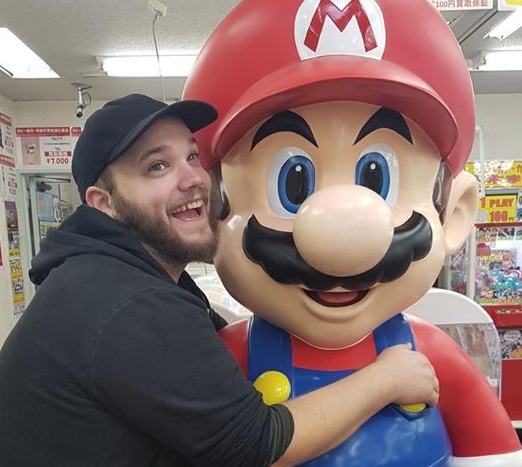
Author’s Note: This is something of a sensitive topic for some people, and, while I certainly do (and will) make a lot of jokes about it, it’s not a subject I take lightly. Please understand that these are my experiences only, I don’t speak for everyone who deals with these same issues, and everyone experiences and deals with this stuff in different ways.
Something that not many people will know about me is that, much like a growing portion of the world, I suffer from mental illness; Specifically, panic disorder, and recurrent major depression. There are many reasons as to why things have reached this point for me, but that’s not what I’m here to talk about today. I want to try and explain what it means to have these problems, how it feels, and how I deal with them, using the two mediums that I’ve come to know and love throughout my life: gaming, and writing. I’ve been playing games since I was old enough to shove a controller in my mouth, and it’s become far more than just a hobby or favoured past-time for me.
Likewise, I’ve always wanted to be a storyteller, jotting down stories, or fragments of stories, often when I’m meant to be doing something far more pressing. Playing and writing about video games is an excellent outlet for me, I can easily get lost for hours in virtual worlds, and hours more talking about or analysing them in text. So, allow me to share with you all a piece of myself using the medium of video games as a means of explanation. I want to offer insight into what living with these conditions is like, and how games help to make it much more bearable. Settle in, folks – this is going to be a long one.
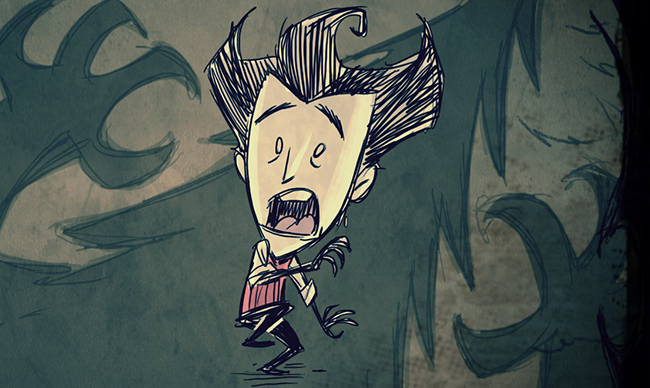
I find that panic disorder is the most difficult problem to describe to people, both regarding how it feels, and what causes it. It should be noted that panic disorder, or extreme anxiety, affects everyone differently and everyone has different triggers. Yeah, yeah, I know – that word has something of a stigma around it these days due to its sometimes questionable, and excessive usage around the internet. It’s an appropriate word to use, though, and let me explain how.
Imagine that in your hand is a gun, the barrel pressed firmly against your temple and something else is controlling the trigger. Instead of bullets, the gun is loaded with anxiety; the ammunition is made up of feelings of dread, fear, doom, and gloom – these things won’t kill you like a bullet will (not straight away, at least) but their effects are still very real. However, exactly like a bullet, once the trigger is pulled, those feelings can’t just be put back into the gun. They’re out there, the NPC that was your calm and serenity is bleeding to death on the ground, and you’ve got a three-star rating. The catalyst for your anxiety, whatever it is that’s squeezed the trigger, that’s what sets you off – or “triggers” you.

It’s kind of like that movie “Inside Out,” except Fear has murdered all the other emotions and is somehow making you fly into the SUN.
My triggers are purely physical; there’s a term called “Hyper-awareness,” which isn’t nearly as cool as it sounds, that means my brain is subconsciously on high alert at all times, wary of even the slightest change in how I’m feeling physically. It could be my bones clicking in an unusual place, strange muscle spasms or soreness, tightness in my chest or maybe my heart rate suddenly picks up for what feels like no reason. This leads to something called “catastrophising,” which means that my brain suddenly perceives these changes as much worse than they are. If my brain could speak independently during all this, it would be saying something like “ohshitohshitohshitohsityou’regonnadiemanohshitohshitohshit.”
Suddenly my fight or flight responses kick in, I begin sweating like David Cameron, I’m absolutely wired, and it feels like Kratos himself has reached into my gut to squeeze my stomach in his iron-like grip while simultaneously, repeatedly punching me in the chest. Those who’ve experienced panic attacks, and anxiety in general, will more than likely be aware of the various calming and relaxation techniques employed at this point, but I personally don’t find them all that helpful. They take a lot of self-control to perform correctly, and you’ll usually have to practice them for a few minutes before you being to feel their effects. Both of these are hard to do when you feel like you’re seconds away from an imminent demise.
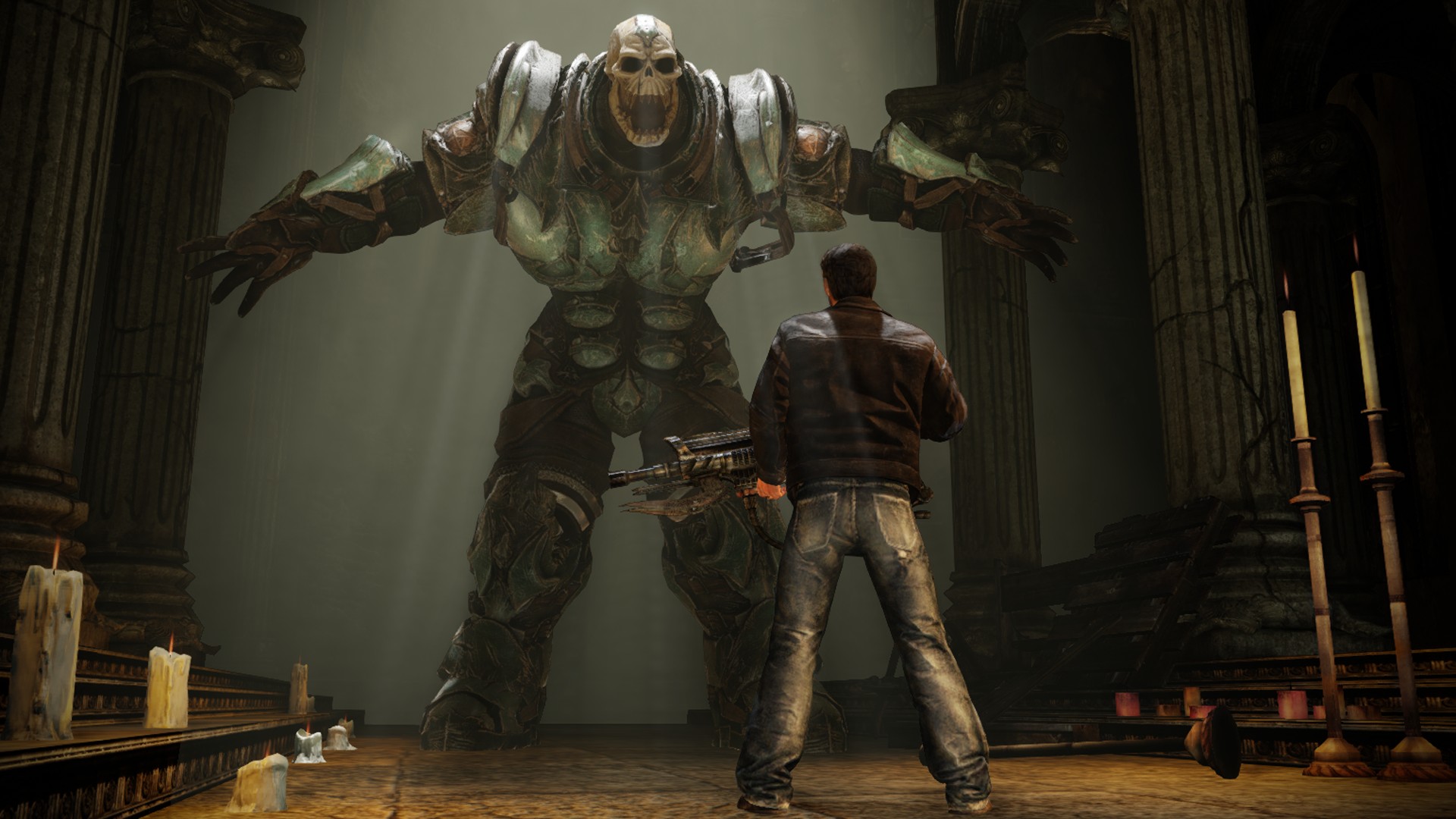
Imagine yourself in this scenario, without a weapon, and hyperventilating.
The typical response from people who aren’t familiar with, or have never felt the effects of anxiety disorder is “So, why not just calm down bro?” If only it were that simple. This is where analogies from gaming come in handy to explain what it’s like to have a major panic attack. When you take damage, games will (or at least should) provide some kind of feedback to show that what’s happening is hurting you. Maybe the edges of the screen will have a red tint to them, your character might be grunting, or otherwise verbally expressing their anguish, perhaps your controller is rumbling in your hands – most importantly, however, your health bar will noticeably deplete.
The idea of this audio, visual, and/or physical feedback is to let you know that shit’s going down, and you need to get the hell out of dodge. Think back to times when this has been happening in-game, and you’ve looked for the source, only to find that there’s no discernable reason. Something’s slowly killing you, and despite your best efforts you can’t find any good reason as to why. It’s distressing, right? Now, imagine that all of those feedback effects are in full swing, alarm bells ringing on high alert, you’re still unable to find out where it’s coming from, but your health bar is totally unaffected. This is what it’s like to have a major panic attack – everything you’ve been conditioned to acknowledge as warning signs are telling you that something is very, very wrong, but nothing is actually happening to you.

I wouldn’t know if this is the same for everyone that suffers from these issues, but, for me at least, depression is the mould coated bacon bits sprinkled over panic disorder. These days, I generally feel it worst after a bout of problems when dealing with my panic disorder. It wasn’t always this way though because, unbeknownst to me, depression had been kicking around in my brain for far longer than I even knew. Panic attacks are something that became immediately apparent when they started happening, and, given how they made me feel, I didn’t fuck around in getting that checked out. Depression, however, is something I suffered through for a long time, and didn’t even realise that it was affecting me. Feeling down and out after something shitty happens is only natural, but not when that feeling lasts for weeks on end after the fact. Or months. Or years.
To put it into game terms, your mental state is like an RPG, and the emotions you feel are pieces of equipment that you don for different situations. Just like equipment, each emotion has a different “slot” that it fits into. Happiness instead of braces, sadness instead of a cloak, etc. And, much like RPG equipment, there can be countless variations of these different items, each carrying unique stats, and they’re used for different situations. In case you’re not following the metaphor, I’m saying that, just like armour in an RPG, you’ll change your emotions on a regular basis to suit the situation, as they all have differing uses. Depression is essentially a cursed item, let’s call it the “Living Ring Of Self-Hate.”

This is different to the Cloak of Sadness, which is easily doffed, and quite often ripped from your shoulders by persistent friends.
You’ll put it on without realising it’s cursed, thinking it’s just another item. It’s only afterwards when you try to take it off to put on something else that you’ll notice that it’s cursed, and can’t be removed. You can still wear other things, other emotions, even cover it up with something else, and, in all likeliness, that’s exactly what you’ll do. Much like a living, evil piece of jewellery that wants to suck the vitality from you, depression is very good at making you outright ignore or accept its existence to your own detriment. With enough time, you may even forget why you put it on in the first place, perhaps even try to protect it from being removed. It helps when you have other people to support you through it, a party of travellers on your woeful journey, if you will, and I’d even go so far as saying that it’s essential.
Here’s another part of depression that really sucks, however, and there’s no getting around it: no one wants to deal with your shit all the time. Think of it as the game ICO; when you’re in a depressed slump, you’re basically Yorda, and those who are trying to help you are Ico. Helping Yorda is an important – essential, even – and a noble cause, to be sure. After helping Yorda for such a long time, however, having to do basically everything for her because she can’t do anything for herself, her presence begins to feel like a burden. Their assistance starts to feel less like noble selflessness, and more like an obligation. Managing your mental health is important, but not when it comes at the cost of destroying the mental health of those trying to help you.
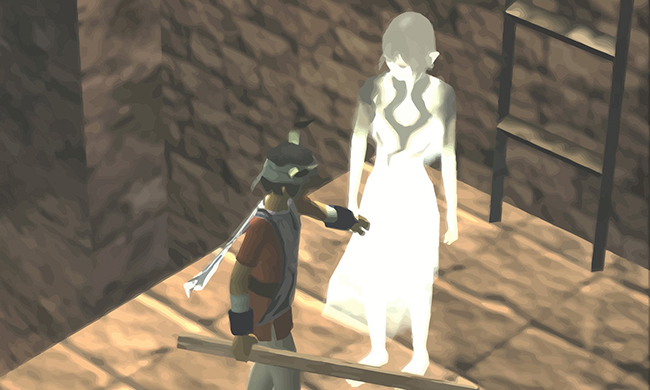
“No, CLIMB the ladder, CLIMB IT FOR FU– You know what? I don’t even care anymore. You can have her, creepy shadow things.”
This might sound harsh but it’s a reality that needs to be accepted in order to help yourself. The love and support of the people you love is critical in dealing with these kinds of mental issues, but it’s possible for them to burn out on caring. We’re all human, it’s difficult to maintain a high level of care at all times, so a big part of learning how to cope with depression is learning how to deal with it on your own where possible, and to rely on others only when needed. So, with all of this in mind, I suppose you’re thinking “Well, that sounds really horrible.” You’re right! It completely blows.
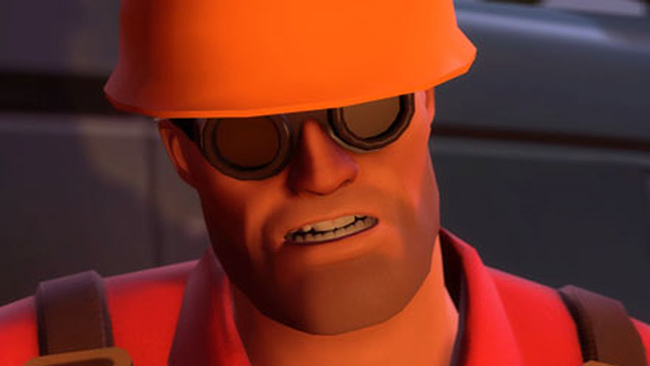
You don’t, not really. The best that anyone can do is learn how to handle it so that it doesn’t completely rule your life. The “triggers” for your anxiety can be completely different to someone else’s, as can the severity to which it will affect you, and the same goes for depression. What’s more is that there’s no hard and fast rule for fixing these kinds of problems, if they even can be “fixed,” and that’s assuming you even attempt to try. I’ve been in therapy for a few years now, and have gone through a number of different anti-depressants, but this was all after several years of denying I even had a problem. Although it’s certainly lesser today than it has been in times past, there still exists a very real social stigma around these issues.
Downing some drugs and talking to a professional has certainly helped, but it’s hardly “all you need.” Lifestyle changes often need to be made, your very way of thinking sometimes needs to be altered, and it helps to have something familiar, and safe to hold onto. For me, that last part is gaming: gaming has been with me my whole life and I don’t see that changing anytime soon. When I need something to focus on that isn’t what feels like my impending, torturous death, I turn to video games to keep me grounded. When I’m so far down in the dumps that I may as well be in a Death Star trash compactor, I can force myself to think about what I’ve played recently, and write about it. Unless I’ve been writing gibberish for the last few paragraphs, they’ve even helped me to put into words how it feels to live with this stuff. On the whole, games are how I keep my shit together instead of falling to pieces every few minutes.

Aaahhhhh, relaxing.
However, unless we can reach a level of technology like that of the classic Affleck/Thurman flick PayCheck, where Paul Giamatti literally lasers that shit out of your mind, you can’t really “cure” either of these conditions. There are definitely stories out there of people who feel that they’ve gotten over their depression, and power to them if that’s the case, but that’s not been my experience. These problems stick with you forever, occasionally rearing their ugly heads throughout your life to remind you that your brain can, and will, betray you at any given moment. So, until Paul Giamatti comes to save me, I’m just sitting here – playing games and scribbling words, trying to keep my mind out of that mental Danger Zone.
What, did you think this was going to have a happy ending? Haha. Hahahaha – have you even read my work before?

